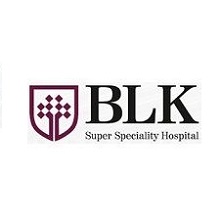Medical Treatments
- Urology Treatment
- Bariatric Obesity Surgery
- Oncology Cancer Treatment
- Cardiology
- Cosmetic Plastic Surgery
- ENT-Head And Neck Surgery
- Infertility Or IVF Treatment
- Joint Replacement Surgery
- Spine Surgery
- Organ Transplant
- Neurology
- Orthopedic Surgery
- Nephrology
- Stem Cell Therapy
- Endocrionology Or Diabetes
- 3D Liposuction Abdomen Lower Back
- Breast Lifting Implant
- Paediatrics Child Neonate
- Robotic Surgery
- Dentistry Dental Implant
- Gynaecology
- Pulmonology /Chest /Respiratory
- Dermatology And Venerelogy
- Opthalmology Eye Treatment
- Gastroenterology Or Hepatology
- Cyber Knife Radiosurgery
- Bone Marrow Surgery Transplant

Bariatric Obesity Surgery
Gastric bypass & other weight loss surgeries are basically designed to change the digestive system in order to help people lose weight by limiting how much one can eat & absorption of nutrients, or both through surgical intervention. These bariatric surgeries are usually sought when diet & exercise have failed to yield results & the person continues to have serious health problems due to weight gain. There are several types of weight loss surgeries & which are collectively known as bariatric surgery. Gastric bypass surgery is, however, one of the most common types of bariatric surgery & many surgeons normally prefer this weight loss procedure due to the fact that it has fewer complications when compared to other weight-loss surgery procedures. Nevertheless, all forms o weight-loss surgeries including gastric bypass are major surgical interventions which can pose serious types of risks & side effects. Moreover, in order to ensure the long-term success of bariatric procedures, patients must be inclined to make permanent healthy changes in diet & also get regular exercise.
Causes of Obesity
Obesity is normally caused by too much eating & moving far too little. When people consume high amounts of energy, particularly sugars & fat & do not burn off enough through exercise & physical activity, as a result much of this surplus energy will be stored by the body as fat.
Calories
- This is the energy value of food which is measured in units known as calories. Normal & physically active average men need about 2,500 calories of energy everyday in order to maintain a healthy weight, while normal & physically active women need about 2,000 calories of energy every day. Although this amount of calories may sound high, but it is easy to reach when people include certain types of foods in their diet. Like for example, large takeaway hamburger along with French fries & milkshake along may total up to 1,500 calories, & this would just be a single meal. Another problem is that most obese people are not physically active, so that lots of these calories end up being stored within their bodies as fat.
Poor Diet
Obesity cannot happen overnight. This condition gradually develops over time, resulting from poor diet & lifestyle choices including the following.
- Eating Large Amounts of Fast Food – This generally included consuming processed foods which are high in sugar & fats.
- Consuming Too Much Alcohol – Since alcohol contains plenty of calories, people who drink heavily are most often overweight.
- Eating Out a Lot – People are usually tempted to have a starter or dessert in restaurants & which are generally much higher in fat & sugar.
- Eating Large Portions Than What is Required – People are commonly encouraged to eat too much when they are with friends or relatives, & who are also eating large portions as a sign of celebration.
- Consuming Too Many Sugary Drinks – These usually include consuming soft drinks & fruit juices.
- Comfort Eating – When people feel depressed or have low self-esteem, they usually take refuge in eating so as to feel better.
Unhealthy eating habits also tend to run in families. Most obese subjects learn bad eating habits from parents when they were young & continue them right into adulthood as well.
Lack of Physical Activity
This is another important factor which is closely associated with obesity. Several people have jobs which simply involve sitting at a desk for the most part of the day. Moreover, these people rely on cars to commute, rather than cycling or walking. As a part of relaxation, obese people tend to watch television, play computer games, browse the internet & rarely take to exercising. Since they are not active enough, they do not consume the energy provided by the food they eat & the extra calories are therefore stored within the body as fat. It is recommended that adults perform at least 150 minutes of moderate-intensity aerobic activity like fast-walking or cycling every week. This is not required to be put in one go, but can effectively be broken down into smaller periods. Like for example, one can exercise for 30 minutes every day for about 5 days every week. People who are obese & trying to lose weight may, however, need to exercise more than the regimen specified above. Nevertheless, they may start slowly & gradually build up to increase the amount of exercise they put in every week. Some people also claim that it is useless trying to lose weight because it is in the genes or runs in the family. Although there are some rare genetic conditions which cause obesity like Prader-Willi syndrome, there is no reason as to why other people cannot lose weight. Though it may be true that certain inherited genetic traits from parents, like having a large appetite, may make it difficult to lose weight, but this certainly does not make it impossible to do so. Obesity in several cases has more to do with environmental factors like poor habits of eating which were learnt during childhood.
Medical Reasons
- Some cases of obesity may have underlying medical conditions which contribute to weight gain. Some of these may include the following.
- Hypothyroidism This condition denotes an underactive thyroid gland which is not producing enough hormones.
- Cushing ’s syndromeThis is a rare disorder which causes overproduction of steroid hormones.
However, when these conditions are properly diagnosed & treated in time, they pose lesser barriers to weight loss programs. However, certain medications including corticosteroids, medicines for diabetes & epilepsy & some medicines which are given to treat mental illnesses, including medications for schizophrenia & antidepressants, can also contribute to weight gain. Moreover, weight gain can also sometimes happen as a side effect of quitting smoking
Classification of Obesity
Obesity basically is a medical condition where excessive fat has accumulated to an extent that it creates an adverse effect on health. Body mass index (BMI) & relative weight are reasonable estimates of fatness as measured by percentage of body fat. However, BMI will not be able to account for wide variation in distribution of body fat & therefore may not be able to correspond to the same degree of fatness or associated health risk in different individuals & populations. Moreover, there are other methods of fat distribution which include body fat percentage & waist-hip ratio as well. Normal weight obesity is a condition where an individual is having normal body weight but a high percentage of body fat with the same amount of health risk as obesity. The classification system below calculates the individual body mass index (BMI) & classifies the patient according to standards laid down by the World Health Organization.
- Underweight: < 18>
- Normal: 5 – 24.9 kg/sq.m
- Obese Class 1: 30 – 34.9 kg/sq.m
- Obese Class 2: 35 – 39.9 kg/sq.m
- Obese Class 3: > 40 kg/sq.m
BMI however, does not provide information about composition or distribution of weight & therefore cannot distinguish between bone, muscle & fat. Therefore, these limitations can cause the following problems.
- Overestimation of body fat among patients gaining muscle & loose fat, but without any change in weight.
- Underestimation of body fat among older patients as lean body mass is gradually declining with age.
- Underestimation of body fat among South Asians. Criteria for South Asian populations, therefore, are as the following.
- Normal BMI: 0 – 22.9 kg/sq.m
- Overweight:0 – 24.9 kg/sq.m
- Obese: > 25.0 kg/sq.m
Measurement of waist circumference, therefore, is a progressive measuring tool for tracking body shape change, particularly when BMI is < 35>
Good Candidates for Weight Loss Surgery
Gastric bypass surgery is one of the most common types of bariatric surgeries. This & other types of weight loss surgeries make surgical alterations to stomach & the digestive system which limit the amount of food a person can eat & how much of the nutrients can be absorbed in order to lead to weight loss. However, gastric bypass & other bariatric procedures are not for everyone. They pose a significant amount of health risks & side effects. Additionally, the long-term success of bariatric surgery inevitably depends upon the patient’s ability to make permanent lifestyle changes. Therefore, patients are required to undergo thorough evaluation in order to determine if they are suitable candidates for weight-loss surgeries.
Guidelines to Qualify for Bariatric Surgery
Gastric bypass & other bariatric surgeries are major life-changing surgical interventions. While these help reduce risk of weight-related health problems like sleep apnea, high blood pressure & Type 2 diabetes, they also pose major risks & complications. Bariatric surgery patients therefore need to meet certain medical guidelines in order to qualify for weight-loss surgeries. For this reason, bariatric surgery patients will require going through an extensive screening process to qualify for weight-loss surgical interventions. Gastric bypass & other types of weight-loss surgeries can be an option for patients in the following conditions.
- All efforts for losing weight with diet & exercise have proved unsuccessful.
- Extreme Obesity – Body mass index (BMI) is 40 or higher than that.
- Obesity – BMI is 35 – 39.9, & the patient is having serious weight-related health problems like severe sleep apnea, high blood pressure or Type 2 diabetes.
In some of the cases, patients may also qualify for certain types of weight-loss surgeries if their BMI is 30 – 34 & they are having serious weight-related health problems.
Evaluating Patients for Bariatric Surgery
Even when a patient meets the above-mentioned general guidelines, he/she will still need to meet certain other medical guidelines in order to qualify for weight-loss surgeries. Most likely, they will have to undergo an extensive screening procedure to qualify for procedures like gastric bypass surgery. The team of health professionals which include a surgeon, dietician, a doctor & psychologist will evaluate if gastric bypass surgery or any other type of weight-loss surgery is appropriate for the patient. This evaluation procedure will generally determine if health benefits outweigh potentially serious risks arising out of weight-loss surgery. This evaluation is also meant to determine if the patient is medically & psychologically ready to undergo the planned bariatric surgery procedure. The health team will consider the following factors while conducting an evaluation for gastric bypass surgery.
- Nutrition & Weight History of Patient – The health team will review the patient’s weight trends, eating habits, diet attempts, exercise regimen, motivation, time constraints, stress level & other factors.
- Medical Condition – There are certain health problems which increase risks which are generally associated with surgical interventions like blood clots, kidney stones, heart problems, liver disease & nutritional deficiencies. The health team will evaluate medications the patient is taking, amount of alcohol they consume & whether they indulge in smoking. The patient will also have to undergo a thorough physical examination & laboratory tests. Results of the laboratory tests & examinations will help determine an individual’s eligibility for bariatric surgery.
- Psychological Status – Certain mental health conditions can contribute to obesity or make it difficult for the patient to maintain health benefits derived from bariatric surgeries. These include substance abuse, binge eating disorders, anxiety disorders, depression & issues which are related to sexual abuse during childhood. Although these do no prevent a patient from undergoing bariatric surgery, the healthcare team may want to postpone surgery in order to ensure that these conditions are appropriately treated & managed well.
- Motivation – Health team will also assess willingness & ability of the bariatric surgery patient to follow recommendations made by them & to be able to carry out prescribed changes in diet & routine exercise.
- Age – Though there is no specific age limit for a patient to undergo bariatric surgery, risks & complications from surgical interventions definitely increase as patients get older. However, weight-loss surgery remains controversial among patients under the age of 18 years.
Pre-Surgery Requirements for Bariatric Surgery
When a person is approved for bariatric surgery, the health care team will provide him/her instructions about how to prepare in the weeks or months prior to undergoing surgery. Common instructions include restrictions eating & drinking habits & undergoing counseling for lifestyle changes which can help them cope with drastic changes in diet & exercise, quitting smoking & beginning a supervised physical activity or an exercise program. Moreover, in some cases patients may be required to lose weight before undergoing gastric bypass surgery. Even after a gastric bypass surgery has been scheduled, it can sometimes be delayed or canceled in case the health care team determines the following.
- The patient is not medically or psychologically ready to undergo bariatric surgery.
- The patient has not made appropriate changes in eating or exercise habits.
- The patient has gained weight during the evaluation procedure.
Are You Fit for Gastric Bypass Surgery
- Gastric bypass surgery is no miracle & is also not for everyone. Moreover, undergoing gastric bypass or any other bariatric procedure does not in any way guarantee that the patient will lose all excessive weight or that they will be able to keep it off in the long-term. It is neither a way to avoid making changes in diet & exercise habits. In fact, patients can regain weight they lost with gastric bypass surgery if they do not stick with changes with lifestyle. However, in case someone still feels that gastric bypass surgery is right for them, they should talk to a bariatric surgeon.
Types of Bariatric Surgery
Bariatric surgery helps people lose weight & lowers risk of developing medical problems which are associated with obesity. Bariatric surgeries are designed to contribute to weight loss in the following two methods.
- Restriction – This is a surgical intervention which is designed to physically limit the amount of food the stomach can hold. As a result, it will limit the number of calories a person can consume.
- Malabsorption – This is a surgical intervention which is designed to shorten or bypass portions of the small intestine. This will eventually reduce the amount of calories & nutrients which the body can absorb.
Four Common Types of Bariatric Surgeries
- Roux-En-Y Gastric Bypass Surgery
- Laparoscopic Adjustable Gastric Banding
- Laparoscopic Gastric Sleeve Surgery
- Biliopancreatic Diversion with Duodenal Switch
- Roux-En-Y Gastric Bypass Surgery
Roux-En-Y Gastric Bypass is known as RYGB in short. It is the gold standard for weight-loss surgery which works by restricting intake of food & by decreasing absorption of nutrients. Firstly, the food intake is limited through a small pouch which is similar in size to the adjustable gastric band. Additionally, absorption of food within the digestive tract is reduced by excluding most of stomach, duodenum & upper intestine from contacting food by routing it directly from the pouch into small intestine. This procedure is usually performed laparoscopically & involves making 5 – 6 small incisions within abdomen through which a small scope connected to a video camera is inserted along with surgical tools for operating. Bariatric surgeons will then staple the top portion of the stomach so that it is separated from bottom in order to create a small stomach pouch. This small pouch is meant to restrict intake of food. Subsequently, a section of the small intestine called jejunum is attached to the small stomach pouch which will permit food to bypass lower stomach & the duodenum. This bypass is meant to reduce the amount of calories & nutrients which the body can absorb. This process is called malabsorption.
Advantages of Roux-En-Y Gastric Bypass Surgery
- Average loss of weight following Roux-En-Y procedure is generally much higher when instructions are vigorously followed, when compared to other restrictive procedures.
- Weight loss through this procedure averages 77 percent of the excessive body weight, a year after performing this surgical intervention.
- Studies reveal that about 50 – 60 percent of excessive body weight loss is maintained by some patients even after 10 – 14 years following this procedure.
- Study conducted over 500 patients showed that 96 percent of certain health conditions like depression, diabetes, high blood pressure, sleep apnea & back pain were largely improved or resolved after Roux-En-Y gastric bypass surgery.
Disadvantages of Roux-En-Y Gastric Bypass Surgery
- Since duodenum is bypassed in this procedure, it can result in poor absorption of calcium & iron & can, therefore, result in lowering of body iron & which can eventually result in iron deficiency anemia. Metabolic bone disease is also found to occur in some patients who have undergone this procedure. However, this disadvantage can be managed through consumption of proper diet & vitamin supplements.
- Chronic anemia due to deficiency of vitamin B12 may occur. This problem can also be effectively managed through injections or vitamin B12 pills.
- There is a condition called ‘dumping syndrome’ which can occur as a result of rapid emptying of stomach contents into the small intestine. Sometimes, this is triggered when large amounts of food or too much sugar are consumed.
- Roux-En-Y procedures effectiveness may lessen in some cases when the stomach pouch is stressed or when it is initially left larger by 15 – 30 cubic centimeters at the time of surgery.
- Bypassed sections of the stomach, duodenum & small intestine cannot be easily visualized with endoscopy or x-ray in case problems like bleeding, ulcers or malignancy occur.
Laparoscopic Adjustable Gastric Banding
Laparoscopic adjustable gastric banding is another type of bariatric surgery which is meant to help with weight loss. During this procedure, the bariatric surgeon will place a band around upper portion of the stomach so as to create a small pouch which can hold food. This band is meant to limit the amount of food which a person can eat before he feels full after eating small quantities of food. Moreover, doctors can also adjust the band after surgery so as to make food pass slowly or quickly through the stomach. Patients are usually given general anesthesia prior to undergoing this surgery. They will, therefore, be asleep during this procedure & will not feel any pain. Laparoscopic adjustable gastric banding surgery makes use of a tiny camera which is placed in the belly. This camera is known as a laparoscope & the surgery is known as laparoscopy. It allows the bariatric surgeon look inside the patient’s belly.
- Bariatric surgeon will make 1 – 5 small surgical incisions in abdomen for this procedure. Through these incisions, the bariatric surgeon will place a camera & surgical instruments which are required to perform this surgery.
- The surgeon will now place a band around upper portion of the stomach so as to separate it from the lower portion. This will create a small pouch with a narrow opening which goes into a larger lower portion of the stomach.
- Laparoscopic adjustable gastric banding procedure does not involve any stapling or cutting inside the patient’s belly.
- Bariatric surgeons will only take about 30 – 60 minutes of time for performing this procedure.
The small stomach pouch will fill up quickly when patients eat after undergoing this surgery. They will fill full only after eating small quantities of food. Food inside the small upper pouch will slowly empty into the main lower portion of the stomach. However, this weight loss surgery may increase the risk of developing gallstones. In case this happens, doctors may recommend a cholecystectomy procedure before or during laparoscopic adjustable gastric banding procedure.
Why Undergo Laparoscopic Adjustable Gastric Banding
-
- This weight loss surgery is an option for patients who are severely obese & have been unable to lose weight through diet & exercise. However, this is not a ‘quick fix’ arrangement for obesity & will involve great changes in lifestyle. Patients must also diet & exercise after this procedure. Complications or poor weight loss may result in case patients fail to do so. People undergoing this weight loss procedure must be mentally stable & not dependent upon illegal drugs or alcohol. Bariatric surgeons have identified the following BMI (body mass index) measures to identify people who are most likely to benefit from this weight-loss surgery. While normal BMI is considered to be 18.5 – 25 this procedure is recommended for people in the following category.
- BMI of 40 or more. This means that men patients are 100 pounds overweight & women patients are over 80 pounds their ideal weight.
- BMI of 35 or more along with a serious medical condition like heart disease, high blood pressure, Type 2 diabetes or sleep apnea & which may improve with this weight loss procedure.
- This weight loss surgery is an option for patients who are severely obese & have been unable to lose weight through diet & exercise. However, this is not a ‘quick fix’ arrangement for obesity & will involve great changes in lifestyle. Patients must also diet & exercise after this procedure. Complications or poor weight loss may result in case patients fail to do so. People undergoing this weight loss procedure must be mentally stable & not dependent upon illegal drugs or alcohol. Bariatric surgeons have identified the following BMI (body mass index) measures to identify people who are most likely to benefit from this weight-loss surgery. While normal BMI is considered to be 18.5 – 25 this procedure is recommended for people in the following category.
Laparoscopic Gastric Sleeve Surgery
Bariatric surgeons laparoscopic gastric sleeve surgery or laparoscopic sleeve gastrectomy by removing about 75 – 80 percent of the stomach. Many doctors & bariatric surgeons would like to use the term ‘sleeve gastrectomy’ while most patients prefer the familiar term ‘gastric sleeve’ which is far easier to remember. This, in fact, is the same operation which leaves the remaining stomach as a tubular pouch resembling a banana. Gastric sleeve surgery is a newer procedure which has gained popularity due to lower rates of complications & good results for weight loss. This reiterates the fact that over 40 percent of all bariatric surgeries performed in the United States were gastric sleeve surgeries.
Gastric Sleeve Surgical Procedure
- Sleeve gastrectomy helps weight loss in a number of ways including the following.
- The newly designed stomach pouch holds considerably less amount of food than the normal stomach did in the past. This eventually aids in reducing the amount of food a person can comfortably eat in a single sitting. Moreover, the food is also able to move much faster in the newly developed stomach pouch.
- There is a significant level of effect on gut hormones as well which help patients feel less hungry & fuller for long.
Research has demonstrated that sleeve gastrectomy is equally effective as Roux-En-Y gastric bypass procedure. Some benefits of this procedure include the following.
- Similar amount of weight loss to Roux-En-Y gastric bypass surgery.
- Reversal of obesity-related health problems are similar & include sleep apnea, fatty liver disease, high blood pressure & Type 2 diabetes.
- Complication rates are lower than Roux-En-Y gastric bypass surgery.
- Approximate 1 – 2 days of hospital stay which are relatively shorter.
- There are lower chances of nutrient deficiency as well.
·Biliopancreatic Diversion with Duodenal Switch
Biliopancreatic diversion literally changes the normal process involving digestion by making the stomach much smaller & allowing food to bypass portions of the small intestine so that they absorb fewer calories. Due to the risks involved, this bariatric surgical intervention is only for people who are severely obese & have not been able to effectively lose weight with any other method. Super obesity generally means people having body mass index (BMI) of 50 or even higher. Following biliopancreatic diversion surgery, patients would feel fuller much faster than when it was in original size. This will eventually reduce the amount of food the patient would want to eat. Moreover, bypassing portions of intestine will also mean that the biliopancreatic diversion patient will absorb fewer calories & thereby leading to weight loss. However, the best chance of losing weight after this procedure is to adopt healthy eating habits alongside regular physical activity. There are two varieties of biliopancreatic diversion surgeries. One is the biliopancreatic diversion & the other is biliopancreatic diversion with duodenal switch. However, most bariatric surgeons will not perform the duodenal switch procedure unless the patient is BMI 50 or higher (super obese) & this massive weight is causing serious health complications.
- Part of the stomach is removed in this biliopancreatic procedure. The remaining part of the stomach is subsequently connected to lower portion of the small intestine. This is, in fact, a high-risk surgical intervention which can also cause long-term health problems since it makes it difficult for the body to absorb food & nutrients. Moreover, people undergoing this surgery must also take mineral & vitamin supplements for the rest of their lives & which can prove to be additionally expensive as well.
- A different portion of stomach is removed in the biliopancreatic diversion with duodenal switch procedure & the bariatric surgeon will leave the pylorus intact. Pylorus is the valve which controls food drainage from stomach. This is also a high-risk surgical intervention & can also cause long-term health problems due to the fact that the body will now have a difficult time in absorbing food & nutrients. Moreover, people undergoing this procedure will also be required to take mineral & vitamin supplements for the rest of their lives & which can also prove to be expensive. Biliopancreatic diversion with duodenal switch is also known as Duodenal Switch surgery in short.
These bariatric procedures can either be done through an open procedure involving a large cut within the belly or by making smaller cuts & using smaller tools along with a camera (laparoscopy) to guide during surgery.
·Expectations Following Biliopancreatic Diversion Surgeries
Patients will experience some pain in the belly & for which they will need to take medications during the first week following surgical intervention. The incision site may also feel tender or sore. Since surgery will make the stomach smaller, patients will feel full more quickly after eating. Food will also empty more quickly into the intestine. This activity is known as the dumping syndrome & which can sometimes cause diarrhea & make the patient feel shaky, faint & nauseated. This entire sequence of digestion can make it difficult for the body to absorb enough nutrition from food. However, addition of a duodenal switch will effectively reduce the risk of dumping syndrome. Biliopancreatic diversion patients will have to watch their activities during recovery, depending upon the type of procedure they underwent, open or laparoscopic. Patients undergoing open surgery will need to avoid lifting heavy weights or perform strenuous exercises while they are recovering in order to allow their belly to heal. Open surgery patients will return to normal routine or work within 4 – 6 weeks of time.
Eating Following Biliopancreatic Diversion Surgeries
Bariatric surgeons will provide specific instructions as to what to eat following biliopancreatic diversion. The stomach can only handle small quantities of soft food & liquids during healing for about the first month after surgery. It is also important that patients try to sip water throughout the day in order to avoid getting dehydrated. Patients may also experience irregular bowel movements right after surgery. Although this is common, patients must, however, try to avoid constipation & straining with bowel movement after surgery. Patients will gradually be able to add solid foods back into their diet. They must make it a point to chew carefully & to stop eating whenever they feel full. This will often need some time to get used to since now they will be feeling full after eating much less than they used to do before. When patients do not chew food well or do not stop eating when they feel full, they may feel nausea or discomfort or may even vomit sometimes. Patients drinking plenty of high-calorie liquids like fruit juices or soda may not be able to lose weight after biliopancreatic diversion. Moreover, the stomach is also likely to stretch after continuous overeating & thereby disturb benefitting from surgery. It is that this surgical intervention removes portions of the intestine where minerals & vitamins are generally absorbed. Due to this fact, patients undergoing this procedure might have deficiency in vitamins or minerals like magnesium, calcium & iron. It is therefore quite important to make sure that biliopancreatic diversion patients get adequate amounts of nutrients in daily meals in order to prevent mineral & vitamin deficiencies through supplements. These patients will, therefore, need to work with dieticians in order to develop a meal plan.
Why Undergo Biliopancreatic Diversion with Duodenal Switch
Biliopancreatic diversion surgery with duodenal switch is only suitable for people who are severely overweight & have also not been able to lose weight with medicine, diet of exercise. Most bariatric surgeons will not perform duodenal switch unless the patient is severely obese with BMI 50 or higher & this excessive weight is causing serious health issues.
Intragastric Balloon Surgery
Once intragastric balloon is put in place, it is now filled with saline so as to partially fill the stomach. This will eventually help the patient feel less hungry & consume smaller portions of food in order to experience satisfaction they would have earlier experienced with a large meal. This balloon is introduced into the stomach through the mouth & therefore does not require the patient to undergo surgery. Bariatric surgeons for this purpose will insert a gastroscope (endoscopic camera) into the stomach. They will look for any abnormalities & when none are found, the intragastric balloon is placed through the mouth down the esophagus into the stomach. Then this balloon is filled with sterile saline solution through a small filling tube which is attached to the balloon. Following the filling procedure, the surgeon will now remove the tube by gentle pulling at the external end & which then leaves the balloon inside the stomach. This procedure is normally performed by qualified gastroenterologists along with an anesthetist & trained nursing staff as an outpatient procedure. Placement of intragastric balloon takes just about 20 minutes following which the patient is monitored by the nursing staff in the recovery room. Since this is a simple outpatient procedure, patients are discharged within 2 hours after insertion of the balloon.
Good Candidates for Intragastric Balloon Procedure
Basically designed to assist weight loss among people ideally having 10 – 30 kilograms of extra weight, minimum BMI for intragastric balloon procedure is BMI 27 & greater. This procedure is also used for people who are unsuitable for other types of weight loss procedures. Use of intragastric balloon can also assist patients in reducing weight prior to undergoing bariatric surgeries & thereby reduce risks which are associated with surgical interventions on overweight patients.
How Long Will Intragastric Balloon Stay in Stomach
Most intragastric balloons can stay inside stomach for a period of 6 months. In case the gastroenterologist recommends further use of balloon, the existing balloon is required to be replaced by a new intragastric balloon whenever the 6-month period is completed.
What Happens When intragastric Balloons Spontaneously Deflate
Gastroenterologists usually place colored dye inside the intragastric balloon & which is known as Methlyene Blue. This is to help identify leakage or early deflation as this will change the color of the patient’s urine to green. In case this occurs, the patient must immediately notify the gastroenterologist & which then will be followed by removal of the balloon.
How is Intragastric Balloon Removed
Intragastric balloons are removed the same way as they were placed, through the esophagus & the mouth. An endoscopic camera is subsequently used & the gastroenterologist will introduce a catheter through mouth into the stomach. This balloon is then punctured & deflated before it can be grasped & removed.
How Much Weight Can Be Lost with Intragastric Balloon Placement
It is very important for intragastric balloon patients to understand that this procedure is only a tool designed to assist weight loss & must therefore be used in coordination with diet, exercise & lifestyle modifications. Amount of weight which can be lost & maintained will however depend upon how closely the patient follows diet restrictions alongside adopting changes in lifestyle.
Common Benefits of Weight Loss Surgery
Effectively combined with a comprehensive treatment plan, bariatric surgery can act as a successful tool for providing long-term weight loss & eventually help patients increase their quality of life. Bariatric surgeries have shown to help resolve several obesity-related conditions like heart disease, high blood pressure, Type 2 diabetes & much more. Quite often bariatric surgery patients shedding weight find themselves taking lesser medications which they have been taking as treatment for obesity-related conditions. Significant weight loss through bariatric surgery can also pave way for several other opportunities for patients, their families & most importantly their individual health.
How Bariatric Surgeries Work?
Bariatric surgeries like gastric bypass, gastric sleeve & adjustable gastric banding, work by altering the anatomy of the stomach & digestive system (gastrointestinal system) or by causing different forms of physiologic changes within the body so as to change the balance between energy & fat metabolism. Regardless of the type of bariatric surgery procedure the patient & the gastroenterologists decide as the best option, it is quite important to keep in mind that bariatric surgery is generally just a tool. Success in achieving weight loss also depends upon many other aspects like nutrition, exercise, changes in lifestyle & more. By altering the gastrointestinal anatomy, certain bariatric procedures also affect the production of intestinal hormones in ways which reduce hunger & appetite while at the same time increasing feelings of satiety (fullness & satisfaction). The end result is meant to reduce the patient’s desire to eat & the frequency of eating. Interestingly, these surgically-altered changes in hormones are in fact opposite to those produced by dietary weight loss programs. A closer look at the hormonal changes between dietary weight loss & bariatric surgeries are as mentioned below.
Bariatric Surgery & Hormonal Changes
Hormonal changes which are found to occur following bariatric surgery tend to improve weight loss by maintaining or enhancing calories which are burnt (energy expenditure). In fact, some bariatric surgeries even increase the amount of calories which are burnt in relation to the changes in the size of the body. Therefore, unlike it is in dietary weight loss, bariatric surgery weight loss has higher chances of lasting is due to the reason that an appropriate balance of energy is created & maintained.
Dieting & Hormonal Changes
Dietary weight loss involves reducing energy expenditure to levels which are lower than they would be predicted by loss of weight & changes in composition of the body. This change in energy which is unbalanced can often lead to weight gain in future. Significant loss of weight is generally associated with a number of other changes which take place within the body in order to help reduce defects in metabolism of fats. Therefore, with increase in weight loss, patients will also find themselves engaging in more physical activity. Patients who find themselves on a weight loss trend most often to engage in physical activities liking swimming, biking, walking & more. Additionally, increase in physical activity when combined with weight loss often tends to improve the ability of the body to burn fat & lead to a positive personal attitude along with decreasing stress levels. Massive loss of weight resulting from bariatric surgery also tends to reduce hormones like insulin which regulate sugar levels & cortisol stress hormones so as to improve production of a number of associated factors which reduce uptake & storage of fat inside fat storage depots. Physical activity is also an extremely important component in combating obesity. Bariatric surgeries, therefore, improve a number of conditions including hormonal changes (biological actions) so as to reverse the progression of obesity. In fact, more than 90 percent of bariatric surgery patients are able to maintain long-term weight loss of 50 percent excessive body weight or even more. Bariatric surgery can, therefore, be a very useful tool, which can help obese patients break the vicious weight-gain cycle, in order to improve patients achieve long-term weight loss, alongside improving the overall quality of physical health & life in general.
Long-Term Weight Loss Success
Bariatric surgeries usually result in successful long-term weight loss. Many studies have demonstrated that more than 90 percent individuals who were previously affected by severe obesity have been successful in maintaining about 50 percent or more of excessive weight loss following bariatric surgery treatments. Among those who were affected by super severe obesity, more than 80 percent patients are able to maintain more than 50 percent of their excessive body weight loss.
Improved Longevity
Many large samples of population studies have revealed that people affected by severe obesity & have undergone bariatric surgery have lowered risk of death than people affected by obesity & have not undergone any type of surgical intervention. One such study found that there was an 89 percentage of greater reduction in mortality through a 5 year period of observation of individuals having undergone bariatric surgery when compared to people who did not. Another such large population study compares mortality rates of non-bariatric & bariatric patients found that more than 90 percent reduction in deaths which were associated with diabetes & more than 50 percent reduction in deaths occurring from heart disease. Mortality rates, 3 out of 1000 for bariatric surgery, are similar to that of gallbladder removal & considerably less than that of hip replacement surgery. These exceptionally low mortality rates associated with bariatric surgeries are quite remarkable, considering the fact that most patients affected by severe obesity were in poor health conditions & were having at least one or more life-threatening diseases at the time of surgery. Therefore, in regard to mortality, benefits of bariatric surgery far outweigh the risks.
Improved or Resolution of Coexisting Diseases
Exceptionally high reduction in mortality rates associated with bariatric surgeries is also due to highly significant improvements in diseases which are caused or worsened by obesity. Bariatric surgeries are associated with massive weight loss & improvement, or in some cases even curative in obesity related co-morbidities for majority of patients. These co-morbidities generally include pseudotumor cerebri, urinary stress incontinence, venous stasis, fatty liver disease, gastroesophageal reflux disease, lipid (cholesterol) abnormalities, arthritis, obesity-related breathing disorders & more. Bariatric surgeries are also found to lead improvement & remission of Type 2 diabetes mellitus (T2DM). However, in the past diabetes was generally considered to be a progressive & incurable disease.
Changes in Psychological Status & Quality of Life with Bariatric Surgery
Weight-loss achieved through bariatric surgery improves overall quality of life in addition to improvement in health & longevity. Positively affected measures of quality of life affected by bariatric surgery include sexual function, social interactions, work, self-esteem & mobility. Moreover, singlehood is also significantly reduced, as is disability & unemployment. Furthermore, anxiety & depression are also significantly reduced after undergoing bariatric surgery treatments.
Cost of Bariatric Surgery across the World
Experts across the world agree that obesity is fast becoming a global epidemic. However, doctors agree that obesity as such is not a condition but disease which can cause serious illnesses. Millions of men & women around the world are grappling with this disease even after following strict diet regimens along with exercising but are still unable to lose weight with best efforts. Weight Loss or Bariatric Surgery eventually comes to the rescue of such people when everything else has failed. Moreover, thanks to global medical tourism, such people can avail affordable bariatric surgery procedures outside their home country where undergoing these weight loss procedures are way beyond their budget. Apart from the low cost of weight loss surgery procedures, it is needless to say that bariatric surgeons in India are among the most experienced in the world & are highly skilled. Healthcare sector in India also features many state-of-the-art hospitals which are NABH & JCI accredited & equipped with cutting edge technology. Cost of bariatric surgery procedures in India are unbelievably lesser that an international patient would have to pay for weight loss surgery in any western country like the UK, Germany, France, Canada or the United States.
Bariatric Surgery In UK, France & USA
Obesity rates are the highest in UK within Europe & have dramatically increased over the past few years to an extent that almost 20 percent of the population are now considered obese. Obesity in France is also increasing & is cited as a major health risk in recent years. Obesity cases in French children are also growing at a faster pace than obesity in adult populations. WHO estimates that 23.9 percent of French population over 18 years of age is clinically obese with BMI 30, or more. Obesity is widespread within the United States & continues to be a leading public health concern. Additionally, severe obesity is a seriously increasing problem among children & adolescents, although substantial disparities exist based upon demographics. Nevertheless, weight loss surgery is widely prevalent & available in these countries, but then it is so expensive that it is beyond the reach of a vast majority of the population. On an average cost of Bariatric Surgery procedures within the United States are as follows.
- Gastric Bypass in USA – $25,000
- Lap Band in USA – $15,000
- Duodenal Switch in USA – $29,000
- Gastric Sleeve in USA – $19,000
Bariatric Surgery In Turkey
Turkey is another good place to avail low-cost weight loss surgery procedures. Istanbul is also a hub of medical tourism since they are able to offer healthcare services at reasonable prices. However, it is another matter that bariatric surgery in India is far more superior & much affordable than weight loss surgery procedures in Turkey. Moreover, healthcare industry in India is plush with numerous NABH & JCI accredited specialty hospitals which are at par with the best in the world. When compared to globally renowned bariatric surgeons performing weight loss surgeries in India, Turkey would not be able to stand a second chance in any respect compared to the cost & quality of bariatric surgery in India.
Bariatric Surgery In Southeast Asia
Although Southeast Asia countries are experiencing some of the lowest rates of prevalence of overweight & obesity cases when compared with the rest of the world, the trend is changing in the recent years. Boom in economic development & cultural factors are usually cited as drivers. India & Vietnam are considered to have the lowest rates of obesity, while Malaysia is having the highest with over 14 percent of the population. Obesity rates in oceanic countries like New Zealand are having 28.3 percent & Australia 26.8 percent. Thailand & Malaysia offer fairly good qualities of bariatric surgery procedures & weight loss treatments for international patients at comparatively affordable prices & in order to boost medical tourism Malaysian law dictates that foreign patients should be offered bariatric procedures at the same prices as the local Malaysians.
Gastric Bypass in Thailand – $11,000
Lap Band in Thailand – $12,000
Duodenal Switch in Thailand – $15,000
Gastric Sleeve in Thailand – $11,000
Bariatric Surgery In South America
Bariatric surgeons in South America are elite in their community of surgeons. They typically enjoy independence in clinical judgment to a large extent. However, there are many advantages & disadvantages of undergoing bariatric surgery procedures in developing countries. The downside of freedom in judgment is that ambitious & unscrupulous bariatric surgeons may severely damage obese patients by attempting procedures for which they have not been trained or certified. Aggressive gastric sleeve surgery which is poorly performed can also lead to stricture & chronic leak. Moreover, bariatric surgery in this part of the world has sluggish support from the healthcare sector. Due to this factor, bariatric surgeons often have to convince patients on the efficacy & safety of the procedure & even counter negative recommendations of primary physicians. These emerging economies also take poorly to bariatric surgery complications & which may be exceedingly difficult situation for international patients. Credibility of the bariatric surgeon is often under suspicion & in some instances mob violence leading to injury to surgeons & damage to hospitals have also occurred alongside lawsuits.
Gastric Bypass in Costa Rica – $13,000
Lap Band in Costa Rica – $9,000
Duodenal Switch in Costa Rica – $13,500
Gastric Sleeve in Costa Rica – $10,000
Gastric Bypass in Mexico – $8,800
Lap Band in Mexico – $7,500
Duodenal Switch in Mexico – $14,000
Gastric Sleeve in Mexico – $8,200
Affordable Bariatric Surgery In India
Apart from high quality of weight loss surgery procedures performed by highly qualified & globally recognized bariatric surgeons, low cost of treatments is the main driving factor. Cost of bariatric surgery in India is in fact just a fraction of what a similar procedure would cost in the United States. Most weight loss procedures in India would almost cost one-thirds or even lesser of an equivalent weight loss surgical procedure in the United States with outcomes at par with the best in the world. Like for example, average cost of sleeve gastrectomy in the United States costing $19,000 there would merely cost about $6,500 in India.
Gastric Bypass in India – $7,000
Lap Band in India – $6,000
Duodenal Switch in India – $11,500
Gastric Sleeve in India – $6,500
Best Surgeons for Bariatric Surgery
- Mufazzal Lakdawala
- Ramen Goel
- Sanjay Borude
- S.S. Saggu
- Randeep Wadhwan
Hospitals for Bariatric Surgery
- Fortis Hospital
- Wockhardt Hospitals
- Apollo Spectra Hospitals
- CODS – Centre for Obesity & Digestive Surgery
- Max Healthcare
FAQs Regarding Weight Loss Bariatric Surgeries
Research invariably supports benefits of bariatric weight-loss surgery, especially for those with BMI 35 – 39.9 with obesity-related health conditions like osteoarthritis, high blood pressure, obstructive sleep apnea, type 2 diabetes & various other obesity-related conditions. These patients can be ideal candidates for bariatric weight loss procedures when they meet the following criteria.
- Having more than 100 extra lbs. over ideal body weight.
- Having BMI (body mass index) over 40.
- Having BMI over 35 & experiencing severe negative health effects like diabetes, high blood pressure which is related to being severely overweight.
- When the patient is unable to achieve healthy body weight for a sustained period of time even after medically-supervised dieting programs.
Why Should Someone Consider Undergoing Bariatric Surgery?
Obesity as such, is harmful to health. Moreover, for people who are 40 percent overweight, it is twice as more likely that they may die a premature death, than average-weight people. This effect is mostly seen after a person has been obese for a period of 10 – 30 years. Obesity is a risk factor for several life-threatening health conditions, including the following.
- Cancer
- Diabetes
- Hypertension – High Blood pressure
- Heart Disease
- Stroke
- Obstructive Sleep Apnea
- However, studies have shown that risk of death from these conditions can also return to normal following weight loss. Within the first 6 months after undergoing bariatric weight-loss surgery, patients may no longer be required to take medications for these conditions. Additionally, women who were earlier struggling with infertility prior to undergoing bariatric surgery will find that conception is now possible after surgery.
What is the Recovery Time Following Weight Loss Surgery?
Following a successful bariatric surgery treatment, most patients recover from surgery quite quickly & without any complications. Average hospital stays for patients who have undergone Roux-En-Y gastric bypass procedure is usually between 2 – 4 days. Typically, patients who have undergone laparoscopic gastric banding procedure stay at hospital only for one or two days.
What is My Ideal Body Weight?
According to guidelines set out by body mass index scale, it recommends a BMI of 18.5 – 24.9 as normally ideal body weight. Using the BMI calculator, people can find out their current BMI & ideal BMI.
Is there any Support from the Surgeon & Operative Staff
Following Weight Loss Surgery?
Yes, gastroenterologists & the gastric bypass surgery healthcare team usually guide patients after each procedure. Regular follow-up visits are also scheduled during the first year following bariatric surgery procedures & to check overall physical & mental health including metabolism & nutritional status.
How Much Weight Loss can be expected from Weight Loss Surgery?
Most bariatric surgery patients lose between 66 – 80 percent of excessive body weight & most of this is lost between 18 – 24 months following surgical intervention for weight loss.
What are the Dietary Restrictions Following Weight Loss Surgery?
Patients will need to follow specific eating guidelines provided to them following bariatric surgery procedure. Dieticians also work directly with bariatric surgery patients so as to help them plan healthy & appropriate meals. Additionally, patients are also required to stop smoking & to discontinue use of NSAIDs medications.
Is it Possible to Gain Back Weight Following Weight Loss Surgery?
Bariatric surgery procedures are having an excellent long-term proven record of helping morbidly obese patients lose excessive weight. However, there can be no guarantees with any weight loss method, including surgery. Success is possible only when the patient is committed to making changes in diet & lifestyle for the rest of his/her life.
What are the Risks of Bariatric Surgery?
Like all surgical interventions, bariatric surgery also has inherent risks, particularly when the patient is morbidly obese. Moreover, different procedures have different risks which depend upon individual circumstances & which may be at times higher or lower than average. It is also important for patients to understand that, bariatric surgeons with more experience in performing these weight loss surgical procedures report fewer complications.
Types Of Surgery |
Days in Hospital |
Procedure Cost (USD) |
|---|---|---|
| Laparoscopic Gastric Bandingsurgery cost in India | 3 | 8200 |
| Laparoscopic Gastric Bypass surgery cost in India | 4 | 7800 |
| Gastric Bypass including stapling surgery cost in India | 4 | 8600 |
| Laparoscopic Sleeve Gastrectomy surgery cost in India | 4 | 6600 |
| Sleeve Gastrectomy including stapling surgery cost in India | 4 | 6600 |
| Roux-en-Y surgery cost in India | Depends upon the treatment | 7970 |
| Intra Gastric Ballooning treatment cost in India | Depends upon the treatment | 2750 |
Inclusions and Exclusions
INCLUSIONS
1. Airport Pick-up on Arrival in India2. Airport Drop on Departure from India
3. Cost of initial Evaluation and Diagnosis
4. Cost of the Surgery or Treatment
5. Cost of applicable one implant/prosthesis
6. OT Charges and Surgeon’s Fees
7. Consultation Fees of the Doctor for the concerned specialty
8. Nursing and Dietician’s Charges
9. Hospital Stay for the specified number of days in the respective room category as mentioned against the package
10. Hospital stay includes stay of the patient and one attendant for the duration of stay mentioned against the package
11. Routine investigations and medicines related to the surgery or treatment.
12. Food for the patient and the attendant for the specified number of days as mentioned against the package
13. Travel Assistance/Medical Visa Invite/FRRO/ Visa Extensions
14. Assistance in finding right budget hotel or guest house accommodation.
15. Issuing Invitation Letter for Medical Visa.
EXCLUSIONS
1. All expenses for stay beyond the specified number of days2. Cross Consultations other than the specified specialty
3. Use of special drugs and consumables
4. Blood products
5. Any other additional procedure
6. Post discharge consultations, medicines, procedures and follow-ups
7. Treatment of any unrelated illness or procedures other than the one for which this estimate has been prepared
8. Travel Expenses and Hotel Stay
DISCLAIMER:
* Quote given is ONLY for the treatment in the hospital and DOES NOT include food as well as the accommodation cost outside the hospital.
* The quote may vary in case of co-morbidities, which are associated medical conditions and an extended stay.
* The treatment suggested is as per the information and reports provided to us. The line of treatment may differ according to the additional and comprehensive details asked by our consultants.
* The prices quoted are only indicative and may differ. They can be confirmed only after the patient is assessed by a doctor.
* The complete treatment cost has to be deposited in advance after the finance counseling for the patient is done at the hospital











